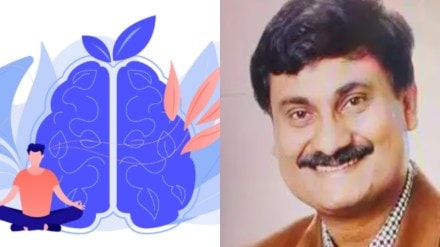The recent suicide of a chief manager at Bank of Baroda in Baramati, Pune district, has triggered serious concerns over increasing work-related pressure. Experts say rising stress at workplaces is driving many over the edge.
Dr Nishikant Thorat, Associate Professor of Psychiatry at BJ Government Medical College, was quoted by The Indian Express as saying. “There’s a growing number of people seeking help for stress and burnout. In Pune itself, we’ve seen a 10 to 20 per cent increase in people coming for stress-related counselling.”
Doctors are now urging companies to introduce mental health checks and stress relief programmes. The publication quoted Dr Thorat as saying, “We need more stress management efforts, life-skills workshops, and better work-life balance support.”
9.6% of suicides involve working professionals
According to the National Crime Records Bureau (NCRB) data from 2022, 9.6 per cent of total suicides were by salaried or professional individuals.
The outlet quoted Dr Praful Kapse, who works for the Department of Psychiatric Social Work, Maharashtra Institute of Mental Health, as saying, “Suicide is one of the most preventable causes of death, yet signs of distress are often ignored. We must speak about it and encourage people to seek help.”
He also stressed the need for counselling cells across all sectors, not just corporate offices but also small businesses and government workplaces.
Work culture and lifestyle contributing to stress
Dr Thorat told the publication that workplace stress is rising because of tight deadlines, unhealthy competition, long working hours, lack of rest and constant pressure.
“There are also relationship issues with bosses and co-workers, poor diet, alcohol and drug use, and individual emotional vulnerabilities – all of which add to the problem,” he told the outlet.
He added that a healthy and stress-free environment is key. “Supportive staff, time to relax, meditation, positive communication, and short breaks for mindfulness can really help. Most importantly, empathy and a sense of belonging are vital,” he added.
Rest, not more activity, key to beating burnout
Psychologist Dr Kinjal Goyal, who works with many burnout cases, warned that adding too many wellness activities might backfire.
Dr Goyal was quoted by the publication as saying, “Even things like yoga or meditation can add to the pressure if people don’t get time to actually rest. Real recovery needs real personal time, without feeling guilty or pressured to be productive”.
Dr Goyal also said that resilience needs to be taught early. “We wait too long to teach coping skills. If children learn how to manage stress early, they grow up stronger and better prepared for life’s challenges,” she said.
Digital habits worsen stress
The blurred lines between work and personal life in today’s digital age are worsening emotional health. “Many of my patients spend up to eight hours a day on screens. They feel they can’t switch off – always replying to messages and emails, even after work. It’s important to take digital detoxes,” Dr Goyal stated.
She added, “We must build a culture where boundaries are respected, and people can truly disconnect and recharge.”
